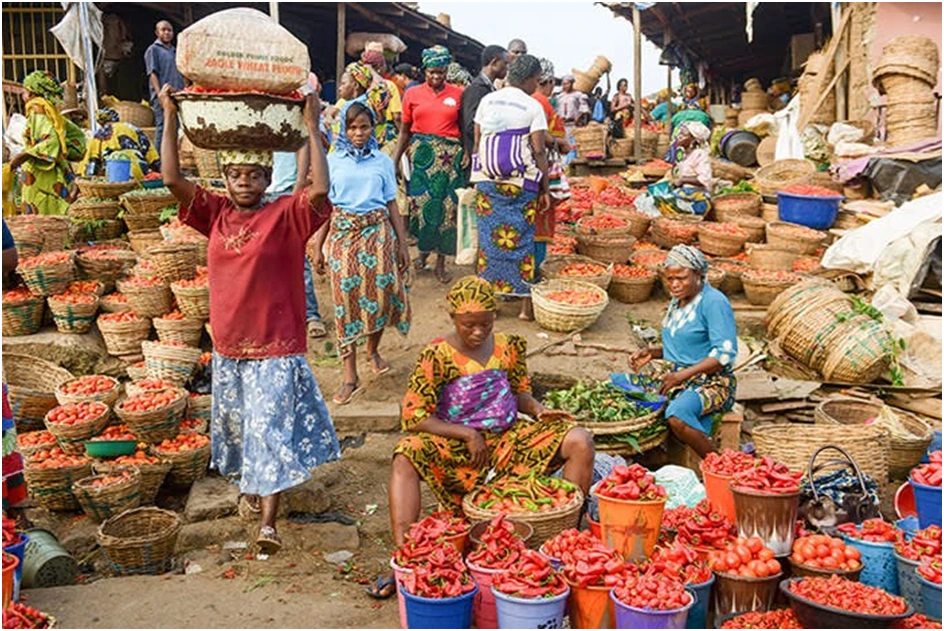
A new report by Moniepoint Inc., in collaboration with the International Finance Corporation (IFC), has raised fresh concerns over deepening inequality and financial vulnerability in Nigeria’s informal economy particularly among women-owned businesses.
According to the 2025 Moniepoint Informal Economy Report, 41 percent of women-owned informal businesses in Nigeria make less than ₦10,000 in daily profit, compared to 34 percent of their male counterparts. This income gap is further compounded by reduced access to credit, shorter business lifespans, and an overall decline in female participation in the sector.
“Only 10% of women-owned businesses earn more than ₦50,000 daily, compared to 16% of men,” the report revealed.
Fewer Women, Lower Profits, Shorter Lifespans
The report notes that women now account for just 35% of business owners in Nigeria’s informal sector, down from 37% in 2024. Even more troubling, only 1 in 4 women-led businesses survives beyond five years, underscoring systemic barriers to scale and sustainability.
Despite these challenges, the informal economy remains massive and critical to Nigeria’s economic engine, comprising millions of unregistered micro and small enterprises that provide jobs, essential goods, and services.
Revenue Growth Isn’t Matching Profit Gains
While 65% of respondents reported some form of revenue growth over the past year, just 47% said their profits increased.
The top drivers of rising business costs include:
- Increased prices from suppliers
- Rising transportation expenses
- Depreciation of the naira
According to Moniepoint, 79% of businesses say their overall cost of operation has risen significantly in the past 12 months.
Credit Access Shrinks as Loan Fears Grow
One of the most striking shifts captured in the report is the plummeting appetite for credit. In 2024, 30% of informal businesses said they hadn’t taken any loans. That figure has now jumped to 51%.
“The most cited reasons were fear of being unable to repay, high interest rates, or a belief that their business doesn’t need a loan,” the report stated.
Women are particularly affected, with more likely to avoid loans due to interest rate concerns or lack of repayment confidence. While informal lenders remain a source of capital, very few entrepreneurs especially women access large-scale credit.
- Only 6% of all informal businesses reported receiving loans over ₦1 million
- Men were twice as likely as women to access loans above ₦1 million
Informal Sector Still Largely Cash-Based
Despite Nigeria’s growing fintech ecosystem, cash remains king in the informal space, Moniepoint said. Many small businesses still can’t afford to own POS terminals, though digital transfers are on the rise, particularly for business-to-business (B2B) transactions.
Stakeholders React: Time for Bold, Coordinated Policies
Tosin Eniolorunda, Founder and CEO of Moniepoint Inc., emphasized the need to spotlight the rising cost pressures informal businesses face:
“Our goal is to give voice to the millions of informal entrepreneurs who operate under the radar. Every policy decision affects them, it’s time we listen.”
Foyinsolami Akinjayeju, CEO of EFInA, called for gender-focused financial reforms, urging regulators to offer incentives for financial institutions that tailor credit and insurance products for women-led enterprises.
“Fragmented interventions are no longer enough. We need coordinated policies that guarantee access and digital inclusion.”
Chinyere Almona, Director-General of the Lagos Chamber of Commerce and Industry, echoed the need for simplified tax systems and gender-sensitive credit frameworks to encourage business registration and formalisation.
“Compliance should be rewarding, not burdensome,” she said.
Also weighing in, Jumoke Oduwole, Minister of Industry, Trade and Investment, said unlocking the informal economy especially for women and youth is key to building a more inclusive and prosperous Nigeria.


